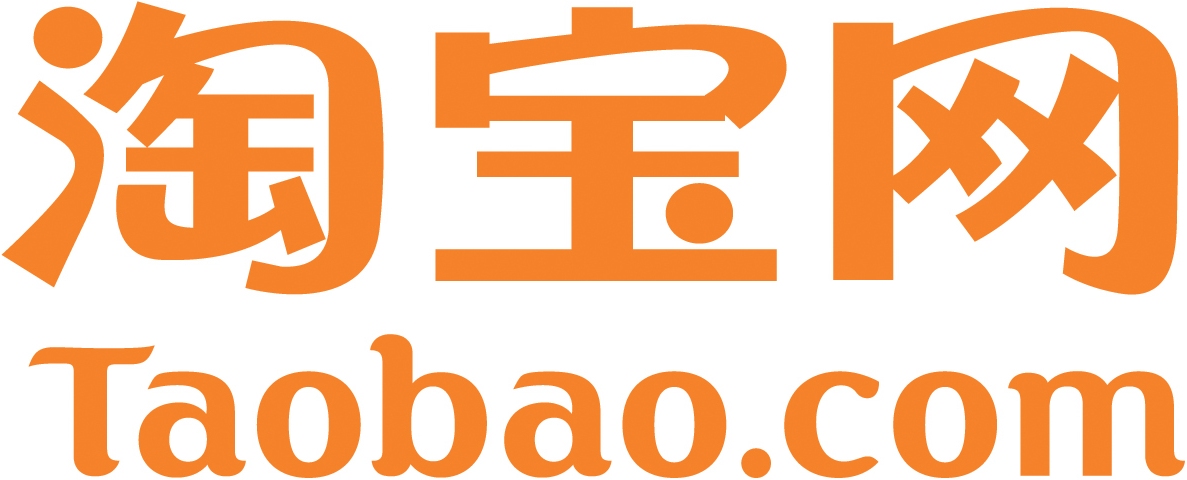The incomes of Chinese SMEs B2B e-commerce reached 23.45 billion USD in 2024, an increase of 12%.
Data points and facts about the B2B market in China, highlighting its growth, sectors, and trends:
- Market Growth: The B2B market in China is growing steadily, with an annual growth rate of approximately 10%, which outpaces the country’s GDP growth rate.
- High-Performance Sectors: Specific segments within the B2B market, such as MRO (Maintenance, Repair, Operations), electrical engineering, machinery auto parts, and the chemical industry, are experiencing annual growth rates of 40-50%.
- E-business Integration: Most of the B2B transactions are increasingly being facilitated online, leveraging platforms that specialize in various sectors.
- Innovative Distribution Models: New retail models are being adopted, where companies use regional and city warehouses to speed up delivery times, enhancing customer satisfaction.
- Lead generation & Social media: An emerging channel for B2B transactions, utilizing platforms that support live streaming and mobile device usage, aligning with the digital habits of Chinese businesses.
- Digital Platforms Predominance: Platforms like Alibaba, JD.com, and new players provide extensive B2B services ranging from product sourcing to comprehensive supply chain management.
- Increasing Use of Alternative Lending: The alternative lending market in China is expected to grow significantly, providing new financing options for B2B transactions.
- Global Influence: China’s B2B marketplaces like Alibaba and Globalsources.com play a crucial role in global trade, catering extensively to international buyers and sellers.
- Shift Towards Advanced Baidu: There is a significant shift towards more specialized and advanced B2B Baidu marketing, Baidu B2B, Zhihu platforms that cater to specific industries and sectors.
- Market Dynamics: The Chinese government’s favorable policies towards digital commerce and the development of sophisticated logistical networks support the growth of B2B , specially lead generation.
These insights reflect China’s dynamic B2B landscape, showing a robust integration of digital strategies and an advanced logistical framework that supports both domestic and international trade.
With the continued growth of e-commerce and SME investments in the development of their services and marketing, this market is far from dying out and still promises stable growth in the next years.
Need a cost effective TP (Tmall Partner) to sell in China?
We are an Official Tmall Partner e-commerce Agency. Our Services: E-Commerce, Search Engine Optimization, Advertising, Weibo, WeChat, WeChat Store & PR.
B2B lead generation platforms in China
In China, leveraging local platforms for B2B lead generation in 2024 can significantly enhance business opportunities. Here’s how five key platforms—Baidu, Zhihu, WeChat, 1688.com, and Douyin—can be effectively utilized for this purpose:
- Baidu: As the leading search engine in China, Baidu is essential for B2B digital marketing. Businesses can use Baidu for SEO and PPC campaigns to increase visibility among potential business clients. Additionally, Baidu offers various tools like Baidu Zhidao (a Q&A platform) which can be used to establish expertise in your field.
- Zhihu: Often referred to as China’s version of Quora, Zhihu is a platform where professionals share in-depth knowledge and insights. Businesses can engage in Zhihu by answering industry-related questions, establishing thought leadership, and connecting directly with other businesses and professionals.
- WeChat: This ubiquitous platform is not just for messaging; it serves as a powerful tool for B2B networking and communication. Businesses can create WeChat official accounts to share content, communicate directly with other businesses, and even run mini-apps for services like appointment scheduling or direct sales.
- 1688.com: Owned by Alibaba, 1688.com is specifically designed for wholesale and B2B transactions within China. It is an ideal platform for sourcing products directly from manufacturers and suppliers. Businesses can use 1688 to find suppliers, negotiate deals, and manage bulk orders directly.
- Douyin: The Chinese counterpart to TikTok can also be a powerful B2B tool, especially for brands looking to increase their visibility through creative content. Douyin is ideal for product demonstrations, behind-the-scenes looks at manufacturing processes, or even B2B influencer partnerships.
Utilizing these platforms allows businesses to tap into the vast potential of the Chinese B2B market, leveraging local habits and digital ecosystems to generate leads, build relationships, and drive business growth.
Increase of growth
The incomes of Chinese SMEs B2B e-commerce have experienced a strong growth of over 30%, reaching 23.45 billion yuan. It is estimated that revenues in the years will maintain a growth rate above 20% and should even reach 54 billion yuan by 2018.
E-commerce has taken in recent years an important role in commerce in China. It is now at the center of transactions between professionals. However, because trading partners have not yet become accustomed to finalize the transaction online, the revenues of these expected to increase in the coming years.
Alibaba is concerned
According to information from iResearch, China’s online commerce group Alibaba, demanding a greater share of the market since Mysteel one is rapidly increasing. While Alibaba took the first place in this market with 34.4% of revenues, mysteel.com share experienced incredible growth of 19.9%
Online services development
Subscription fees, transaction fees, advertising and value-added services are the main source of short-term profits of these companies. Value-added services are secret key of Chinese SMEs B2B e-commerce. By this way, they can easily request a larger share, thus creating greater revenues in their areas. Nevertheless, some SMEs offer monitoring, logistics, online quality guarantee services.
Since B2B companies have launched their online business, there is the development and rapid growth of online payment services, guarantee, authentication and even credit providers. These have been greatly improved since professionals were struggling to trust online transactions, considering them as unreliable. However, these professionals must get used to this new trading method.
The concept of lead generation in the B2B sector in China encompasses a set of strategies and practices tailored to the unique business environment of the country. Chinese B2B lead generation focuses heavily on building relationships, leveraging digital platforms, and maintaining a robust e-reputation to successfully close deals. Below is a detailed explanation of the process, particularly emphasizing the role of WeChat, a crucial platform in this ecosystem.
Understanding B2B Lead Generation in China
Lead generation in China’s B2B sector is not just about identifying potential customers but also about nurturing relationships over time. This process is deeply integrated with social and professional norms prevalent in China and is heavily influenced by digital transformation in business practices.
Never underestimate the Role of Digital Platforms in China
WeChat for Communication and Negotiation
-
- Communication: WeChat is pivotal in the B2B landscape. Almost every business in China uses WeChat for daily communications. The app allows companies to maintain continuous contact with potential clients through messages, official accounts, and WeChat groups.
- Negotiation: WeChat supports various features like voice and video calls, which can be used for more personal and direct negotiation sessions. This helps in building trust and rapport, which are crucial for successful business dealings in China.
- Digital Content and E-Reputation
- Content Marketing: Leveraging platforms like WeChat, Zhihu, and industry-specific forums, businesses can publish informative content that establishes their expertise and builds brand credibility.
- E-Reputation Management: In China, the reputation of a business significantly influences its success. Active management of online reviews, customer testimonials, and engaging positively with the community helps enhance a company’s e-reputation.
- Lead Nurturing and Conversion
- Personalized Engagement: Customizing interactions based on the preferences and behaviors of leads can significantly increase conversion rates. Tools integrated within WeChat and other CRM systems allow for such personalized engagement strategies.
- Follow-ups and Closing Deals: Regular follow-ups through WeChat and email keep the potential clients engaged. Closing deals often involve multiple in-person or digital meetings facilitated by comprehensive digital dossiers and proposals.
- Baidu is main source of B2B traffic and best search engine in China
Closing Deals: A Multi-Faceted Approach
The final stage of lead generation in the Chinese B2B market involves a combination of strategic persistence and flexibility. Closing deals requires understanding the client’s business culture, decision-making process, and often, the involvement of various stakeholders. WeChat serves as a bridge throughout this process, facilitating everything from initial contact and content delivery to negotiation and final agreement.
In summary, successful B2B lead generation in China relies on a deep understanding of local digital ecosystems and cultural nuances. Platforms like WeChat are not merely tools but essential components of the business culture, integral for communication, negotiation, and maintaining a positive e-reputation. This holistic approach ensures that businesses not only generate but also successfully convert leads into lasting partnerships.
Conclusion :
E-commerce is present in all areas and its use is increasingly growing in China market. This country living in the era of online placing much of its economic growth on e-commerce. More and more Chinese SMEs B2B e-commerce grow because along the market growth. E. Sure, for that, a corporate visibility is needed, which requires an appeal to the SEO methods and for that, nothing better than use an agency specialized in promoting e-commerce in China to improve the visibility of an e-shop whether it’s on e-commerce platforms or on your own brand website.
Further reading
How to better understand e-commerce in China at e-commerce mag.fr










i do not know if they really increased fast, but the undeniable fact is that there were indeed so many B2B sites in china now, selling their good to the world. the leading one is alibaba, following is dunhuang, dalong, milan and so on. among, dhgate.com is the most possibility to compete alibaba. milanoo was hit years ago and did not recover…